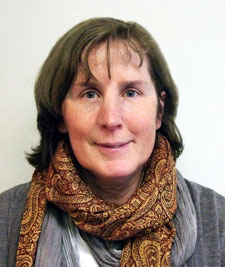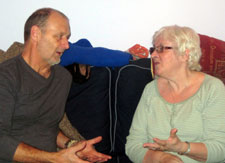Study investigates satisfaction with support offered to stroke survivors' carers
Posted Friday 15 March 2013

"Satisfaction is an important element of measuring service quality and there is evidence that carers from ethnic minorities may feel less happy with the support available than those of white British origin," Dr Nan Greenwood, lead researcher from the Faculty of Health, Social Care and Education, run by Kingston and St George's, explained. "With Black and Asian carers a significant and growing group, it's really important to understand why this is - to ensure equity of access and to make sure needs are met, regardless of ethnicity."
People who care for stroke survivors save the British economy around £2.5 billion every year, but they can sometimes pay a high personal, emotional and physical price. Meeting their needs is important in itself, but having healthy carers is also important for stroke survivors, Dr Greenwood said. Evidence showed patients fared better if their family was healthy, not suffering from stress and involved in their care, she added.
The study, funded by the National Institute of Health Research's School for Social Care Research, will focus on Black African, Black Caribbean, Asian Indian, Asian Pakistani and white British carers aged 50 and older. "We're focusing on older carers as sometimes they, in particular, can find it hard to give frank feedback because they struggle to see themselves as consumers of social care," Dr Greenwood said. "Often they feel they should say that everything is fine, even if it isn't."

Previous research had revealed that people from ethnic minorities were under-represented in their take-up of mainstream services, sometimes because they didn't think they were appropriate for them, Dr Greenwood said. She hopes the research, which will be completed next year, will offer an insight into why some carers are less satisfied with the support available than others and will also provide useful information to help social care organisations plan future services. "One of the debates in social care is whether services should be specifically designed to suit the needs of one particular group, or whether mainstream services should be suitable for everyone," Dr Greenwood said. "Developing tailored services could make one group feel singled out, or different. However, it would mean programmes could be shaped to meet the specific language, cultural or religious needs of that group."
- Find out more about the Long Term Conditions Research Group at Kingston University and St George's, University of London.